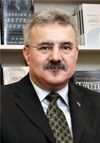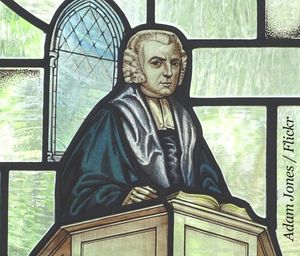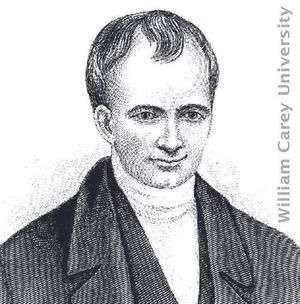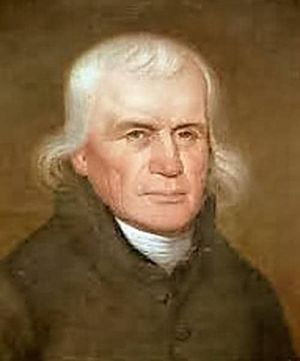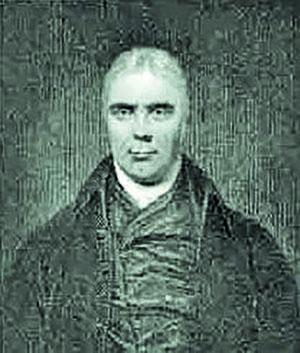Jonathan Edwards (4)
The impact of the revival that came to Northampton in the winter and spring of 1734-1735, which we looked at in November’s ET, was nothing less than profound. Jonathan Edwards put it thus.
‘This work of God, as it was carried on and the number of true saints multiplied, soon made a glorious alteration in the town: so that … the town seemed to be full of the presence of God: it never was so full of love, nor of joy, and yet so full of distress, as it was then.
‘There were remarkable tokens of God’s presence in almost every house. It was a time of joy in families on account of salvation being brought unto them; parents rejoicing over their children as new born, and husbands over their wives, and wives over their husbands.
‘The goings of God were then seen in his sanctuary, God’s day was a delight, and his tabernacles were amiable. Our public assemblies were then beautiful: the congregation was alive in God’s service, every one earnestly intent on the public worship, every hearer eager to drink in the words of the minister as they came from his mouth.
‘The assembly in general were, from time to time, in tears while the word was preached; some weeping with sorrow and distress, others with joy and love, others with pity and concern for the souls of their neighbours.’
Nor was the revival limited to the town of Northampton. It spread swiftly to thirty-two other towns throughout the Connecticut River Valley. It went north to Northfield and as far south as Guilford, Lyme, and even Groton, Connecticut.
A Word-centred revival
One of the central characteristics of this revival was a deep appreciation of the Word of God. In Edwards’ words: ‘While God was so remarkably present amongst us by his Spirit, there was no book so delightful as the Bible; especially the Book of Psalms, the Prophecy of Isaiah, and the New Testament’.
Edwards also cites the example of a seventy-year-old woman, who had spent most of her days under the ministry of his grandfather, Solomon Stoddard.
‘Reading in the New Testament concerningChrist’s sufferings for sinners, she seemed to be astonished at what she read, as what wasreal and verywonderful, but quitenew to her.
‘At first, before she had time to turn her thoughts, she wondered within herself, that she had never heard of it before; but then immediately recollected herself, and thought she had oftenheard of it, and read it, but never till nowsaw it as real.’
Edwards’ account of this revival, the Faithful narrative of the surprising work of God, was first published in London in 1737.
Among those who read it at that time, and were deeply impressed, was Howel Harris (1714-1773), the Welsh Calvinistic Methodist evangelist, who came to possess a copy of the book in February 1738.
After reading it, he was led to pray: ‘O go on with thy work there [i.e. in New England] and here’. Harris’ prayer received an answer in 1740-1742, when God again visited New England with revival, but this time on a much more extensive scale.
The Great Awakening
This revival has come to be known as the Great Awakening (1740-1742), and it made a profound impact not only on New England, but also on the other American colonies to the south.
Estimates of those converted in New England alone, where the population was around 250,000 at the time, range from 25,000 to 50,000. These figures, it should be noted, do not include conversions among those who were already church members.
In the middle of the revival, William Cooper (1694-1743), one of Edwards’ most stalwart friends and the Congregationalist minister of Brattle Street Church, Boston, gave his perspective on what God was doing in his day. It reads as follows.
Uncommon zeal
‘The dispensation of grace we are now under, is certainly such as neither we nor our fathers have seen; and in some circumstances so wonderful, that I believe there has not been the like since the extraordinary pouring out of the Spirit immediately after our Lord’s ascension.
‘The apostolical times seem to have returned upon us: such a display has there been of the power and grace of the divine Spirit in the assemblies of his people, and such testimonies has he given to the word of the gospel…
‘A number of preachers have appeared among us, to whom God has given such a large measure of his Spirit, that we are ready sometimes to apply to them the character given of Barnabas, that “he was a good man, and full of the Holy Ghost, and of faith” (Acts 11:24).
‘They preach the gospel of the grace of God from place to place, with uncommon zeal and assiduity. The doctrines they insist on are the doctrines of the reformation, under the influence whereof the power of godliness so flourished in the last century.
‘The points on which their preaching mainly turns are those important ones of man’s guilt, corruption, and impotence; supernatural regeneration by the Spirit of God and free justification by faith in the righteousness of Christ; and the marks of the new birth.
‘The manner of their preaching is not with the “enticing words of man’s wisdom” (1 Corinthians 2:4); howbeit, they “speak wisdom among them that are perfect” (1 Corinthians 2:6).
‘An ardent love to Christ and souls warms their breasts and animates their labours. God has made those his ministers active spirits, a flame of fire in his service; and his word in their mouths has been, “as a fire, and as a hammer that breaketh the rock in pieces” (Jeremiah 23:29).’
Sweep of church history
Here Cooper places the revival in New England within the broad sweep of church history. He is utterly convinced that no other revival, in either his lifetime or that of his Puritan forebears, was comparable to what God was doing in the early 1740s. In some respects only at the time of Pentecost could one find something genuinely comparable!
However, the preaching through which God had brought about this revival contained nothing new.
Essentially, it was the same doctrine of salvation that was trumpeted forth at the time of the Reformation and in the Puritan era – one that highlighted humanity’s total depravity, the Spirit’s glorious sovereignty in regenerating sinners, and their justification by faith alone in Christ.
And the preaching style fitted the doctrine – it was plain and ardent.
Seeking new birth
Cooper goes on to specify what he considers so extraordinary about the revival. First, there is the incredible way that it swept through ‘some of the most populous towns, the chief places of concourse and business’.
Then there were the numbers that professed conversion – ‘stupid sinners have been awakened by hundreds’. During the winter of 1740-1741 in Boston alone, Cooper states, ‘some thousands [were] under such religious impressions as they never felt before’.
People of all ages, from the very elderly to the very young, were saved – the elderly ‘snatched as brands out of the burning, made monuments of divine mercy’ and ‘sprightly youth … made to bow like willows to the Redeemer’s sceptre’.
Moreover, God drew to himself some of the grossest sinners in New England – drunkards, fornicators and adulterers, people addicted to profanity and ‘carnal worldlings … made to seek first the kingdom of God and his righteousness’.
On the other hand, many of those who deemed themselves upright and moral became convinced that ‘morality is not to be relied on for life; and [were] so excited to seek after the new birth, and a vital union to Jesus Christ by faith’.
Critics of the revival
The revival, however, was not without its critics. Many who had been deeply impacted by the worldview of the eighteenth-century Enlightenment sought to write the revival off as sheer ‘enthusiasm’ (i.e. fanaticism).
Edwards profoundly disagreed with this interpretation, though he was not slow to critique theological and practical aberrations when they appeared during and in the wake of the revival.
Next month we shall focus on this critique of the revival by Edwards.

